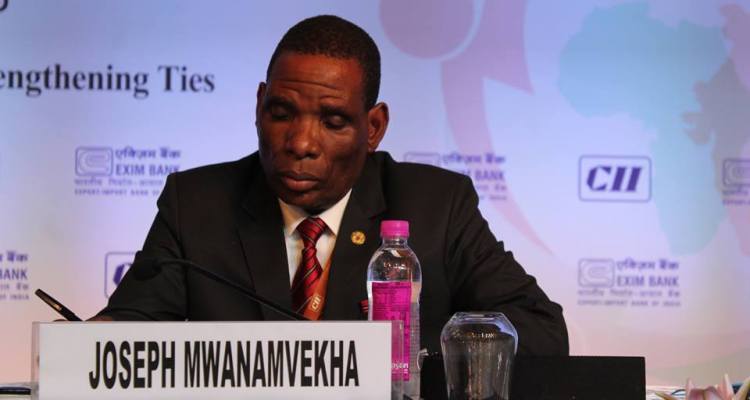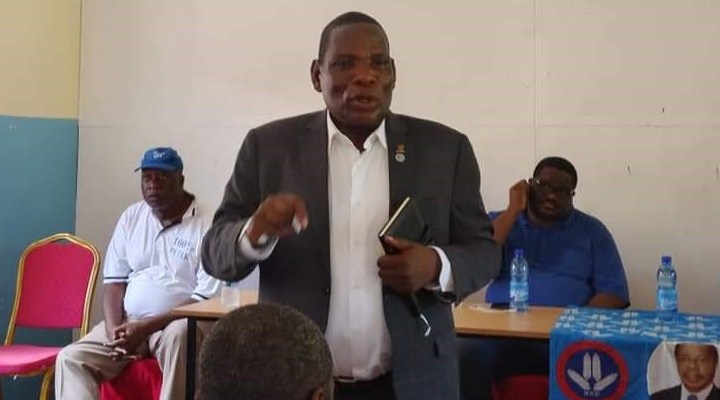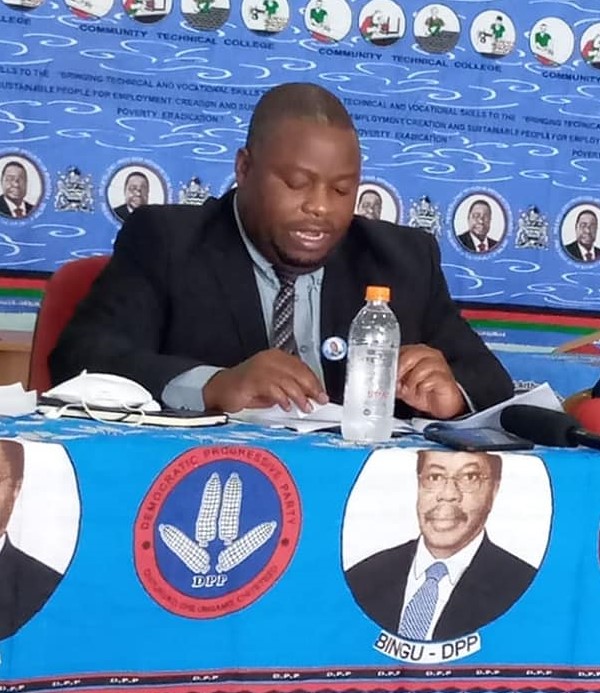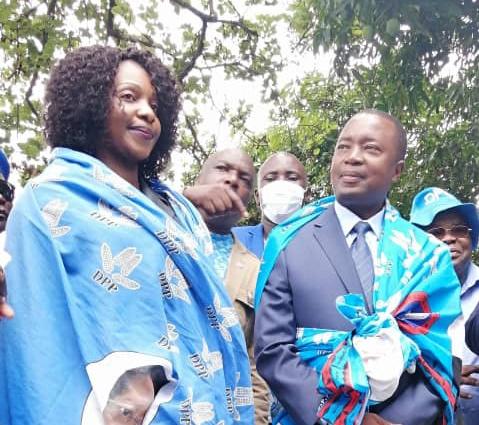
The Democratic Progressive Party (DPP) finds itself at a critical juncture where it must make crucial decisions to acquire ‘rites of passage’ necessary to survive the next phase of multiparty democracy in Malawi. Whether anyone likes it or not, DPP will have to part ways with the bittersweet legacy of the Mutharikas, and the sooner that happens the better.
President Peter Mutharika is serving his second and last term as DPP president until the next convention. What will define the party in the next weeks, months or even years is how it manages this transition; replacing Peter Mutharika with a successor who would also most likely be the party’s torchbearer in 2025. Does the party look like it is ready for this transition? The answer is a quick no. What could possibly be the problem? Intra-party democracy.
We are now clocking almost 30 years since Malawi attained multiparty democracy. So far the only thing we have to show for it is the fact that we hold elections every five years. Intra-party democracy still seems to be an elusive animal even within political parties that call themselves big and established. For them, practical transition frameworks are merely on paper and implementing them takes a miracle to happen. What rules supreme is the founder, or call it big-man syndrome, where if it is not the founder himself/herself on the leadership joystick, it is his brother, son, wife, uncle or a very serious protégé.

It is now DPP’s turn to dance to this inevitable leadership transition tango and so far the party is doing it badly. Is it not too long ago that DPP supporters would use every opportunity to brag about being the biggest political party in Malawi replete with comprehensive structures all over the country from branch, area, constituency, district and regional levels? Did they also not say the party has a powerful intra-party democratic framework to ensure smooth transfer of power?
Well, this panel is now muted, and those types of statements have largely gone underground just like those who made them. DPP may have structures across the country, yes; it may also be big (big in this case is a subjective term depending on who is making it), yes, but one lesson that other political parties have learned before is that succession politics within political parties is a bitch. UDF was a once mighty and big political party waltzing majestically across the political space until Atcheya pulled a fast one. After being overcome by the ownership feeling, he installed his son to be at the helm of the party, and now what remains are just pieces of where the UDF used to be. Reason: Succession politics.
Since losing power to the Tonse Alliance government on June 23 last year, DPP seems to be on a steady slide into a cesspool of confusion and anarchy particularly at the apex of its leadership. Peter Mutharika is obviously old and tired, and clearly not in control of affairs in the party. Because of this, other people with a warped agenda want to take control behind him. They are buying time in order to create space for their preferred candidate to take root, which is why there is a lot of double-speak (or should we say non-speak) about the real date the party will hold its convention.
THE PRESIDENTIAL CANDIDATES

Meanwhile factions have sprouted in the party each one supporting its own presidential candidate. Among the candidates that have so far thrown their hats in the ring: the party’s Southern Region Vice President who is also Leader of Opposition, Kondwani Nankhumwa, was the early bird in terms of showing interest and scheming for the DPP presidency. He has been running around particularly in the southern region, meeting party grassroots and canvasing for the presidency. For a moment, he appeared to have gathered momentum across the rank and file in the southern region but his support appears to be waning recently beyond the southern region. He is clearly struggling to convince supporters in the eastern, central and northern region that he the right candidate for the top job.
Nankhumwa also faces questions over his academic background, and appear to have lost the support of President Peter Mutharika both as a presidential candidate and as Leader of Opposition. He is currently relying on the court to hang on to the position of Leader of Opposition. Mutharika (at least that is how it looks) appears to be rooting for the new kid on the block, Dalitso Kabambe to take over from him as President of the party. Although he has so far not uttered any public word about the former Reserve Bank Governor, there are all indications he is a product of machinations in Mangochi minted by Mutharika’s team comprised of octogenarians cousins, Francis Mphepo and Brown Mpinganjira.
They tout Kabambe as a vastly experienced civil servant and economist equipped with a PhD. His presidential campaign has been christened DK 2025 by those that are selling him, and he has already hit the road running. He is not wasting time. However, Kabambe has a serious disadvantage of having Thyolo as his home district (yes it is a disadvantage if you look at the history and origins of DPP); he has also been accused of being Peter Mutharika’s long distant nephew, and that his choice is only an alias to perpetuate the Mutharika legacy.
His choice has also raised eyebrows among some section of DPP supporters who are wondering how a person who has never held any position in the party can suddenly become a favourite presidential candidate without going through the due process of rising through the ranks of the party. They accuse Mutharika of planning to do the Bakili Muluzi style, to circumvent a democratic process and to install his relative from Thyolo as president of DPP.
But in the famous phrase by Anne Rice, “Better to remain silent and be thought a fool than to speak and to remove all doubt,” Kabambe’s speech at his official welcoming ceremony at the party’s southern region headquarters in Blantyre revealed how average he is as a politician. The speech lacked the wow element and is so far his lowed moment on his journey so far to become president of this country. It was a missed opportunity.
There was absolutely no gravitas needed for a maiden speech of someone with a larger agenda for the highest office in the land. He spoke more as a church elder than a politician; mysteriously he actually said he was a church elder. This could be the reason others accuse him of stumbling into politics based on circumstances without his own defined agenda for DPP and for Malawi. They wonder if he has not just been shoved into the fray by a DPP clique currently telling Peter Mutharika what to do for its own ulterior motives.

Although the party’s spokesperson on finance and economy and former Finance Minister in the Peter Mutharika government, Joseph Mwanamvekha, had not come in the open to declare his presidential ambitions, he is fast emerging as a clear-cut presidential material and a serious contender to replace Peter Mutharika. Mwanamvekha is a complete and experienced economist with an impeachable record of accomplishment having managed some prominent banks in the country, including being Treasury Secretary. He is the one credited for bringing back budgetary support from the International community after Joyce Banda administration messed up through the famous cash gate.
As Treasury Secretary, he is also credited for the introduction of electronic payment system in government, which saw civil servants in the country receiving their salaries through the bank unlike the cash based system which was thought to be less secure and prone to theft. Mwanamvekha was also part of the team, together with the current Reserve Bank Governor, Dr Wilson T Banda, which introduced Discount House Business in Malawi, and it was through those efforts that First Discount House (FDH) and Continental Discount House were born in Malawi. He is also credited with the introduction of stockbroking business in the country and the expansion of Malawi stockbrokers.
Mwanamvekha has been going around the country on a self-sponsored campaign to sensitize people about the economy, and also to meet and familiarise himself with DPP party structures. So far, he has been saying all the right things particularly about pointing out economic management flaws of the Tonse Alliance government and suggesting what can be done to put the economy on track. The difference between Mwanamvekha and the other candidates is that he is becoming popular and acceptable across the country than relying on regional pockets.
Unlike Nankhumwa who comes from Mulanje and Kabambe from Thyolo, Mwanamvekha comes from Chiradzulu, a district somehow considered middle-of-the-road and not deeply Lhomwe belt ( there is a feeling the Lhomwe belt is dominating the DPP presidency and needs to change) than Mulanje, Phalombe or Thyolo. Mwanamvekha is also largely a clean politician and indications are that he intends to maintain a ‘Mr clean’ record just when his main adversary for the DPP presidency, Kondwani Nankhumwa is being accused dipping his hand in a cookies jar of receiving Covid 19 allowances without records as the country is erupting over the culture of demanding unnecessary allowances in government. Nankhumwa also faces accusations of being behind a recent press conference fracas where party thugs disrupted a press conference convened by Brown Mpinganjira together with Francis Mphepo, Charles Mhango and Chimwemwe Chipungu. Mpinganjira received a public slap to his left ear and had to run for dear life.
Kabambe also faces public criticism for presiding over a decision to give himself a hefty package as a Governor of the Reserve Bank of Malawi (He raised his salary from 12 million to 27 million per month), which is against the law and contra to best corporate governance practices. He may be the chosen one but getting the DPP presidency may not be on a silver platter, assuming he would get it at all. One famous Ghanaian proverb says, “He who is destined for power does not have to fight for it”. For Mwanamvekha, the DPP presidency could be his for the taking if he maintains current momentum. He is the only one showing purpose and a defined vision not only for DPP but also for Malawi. His only disadvantage is his own intelligence, which has oftentimes come between good candidates and their supporters.


